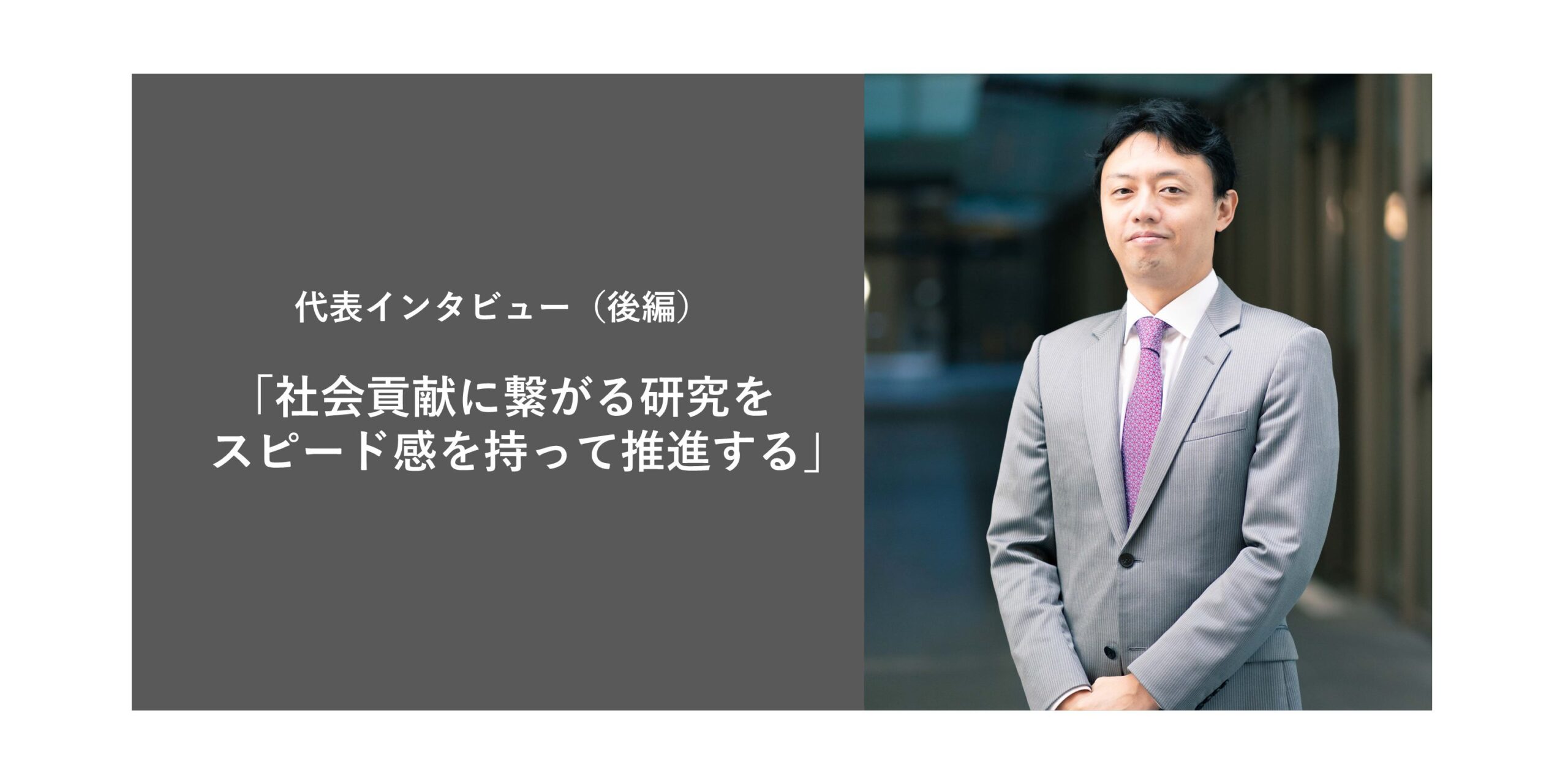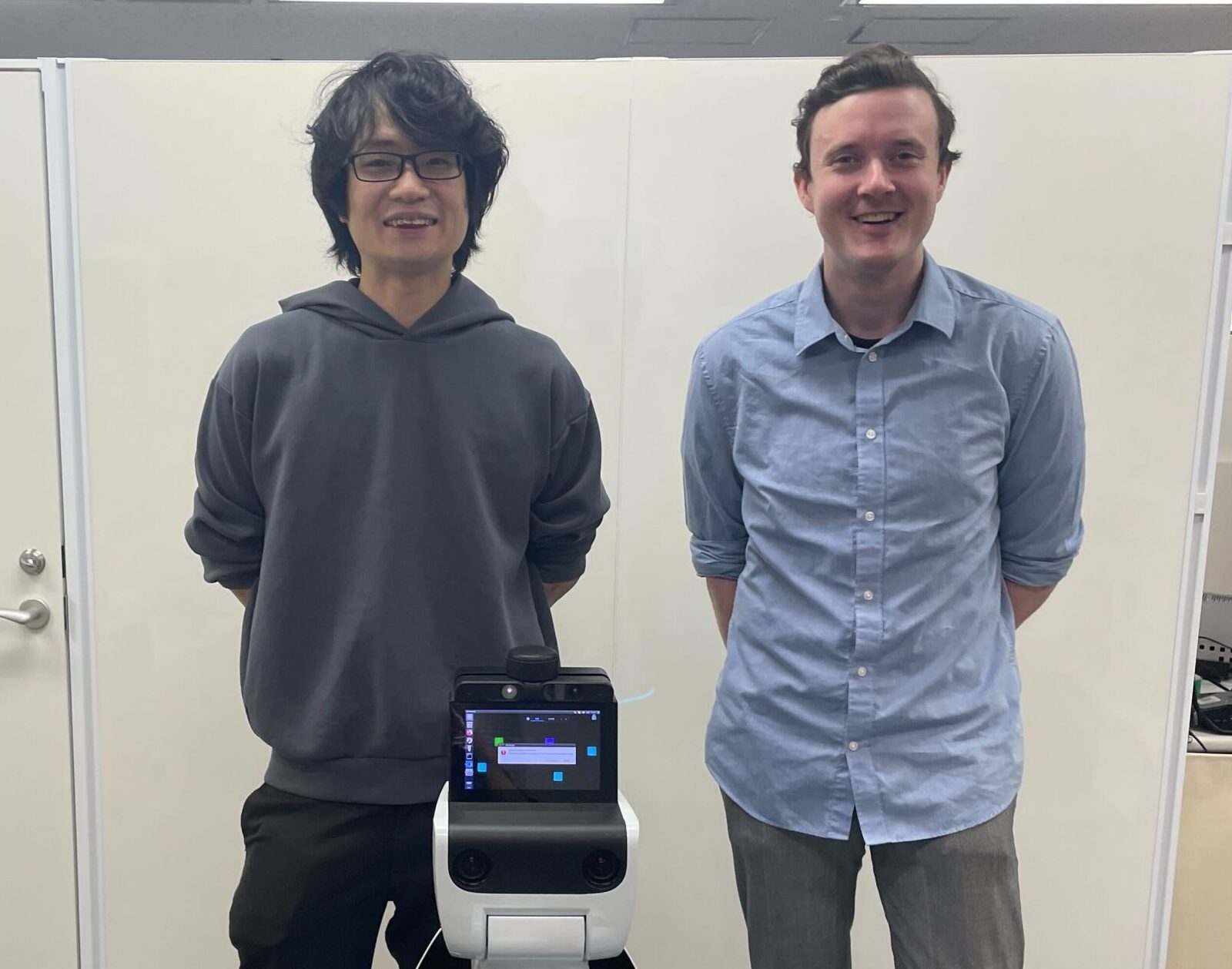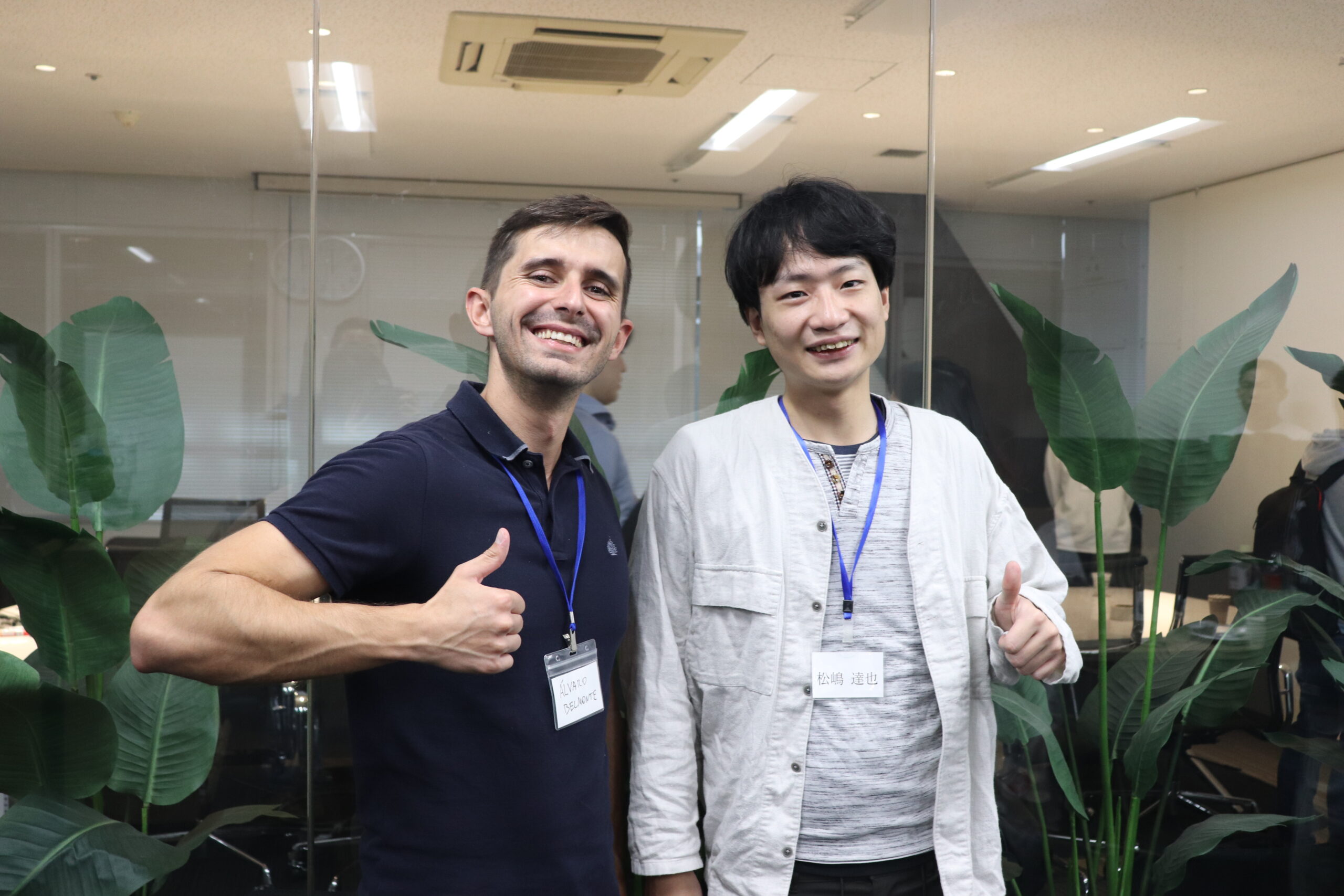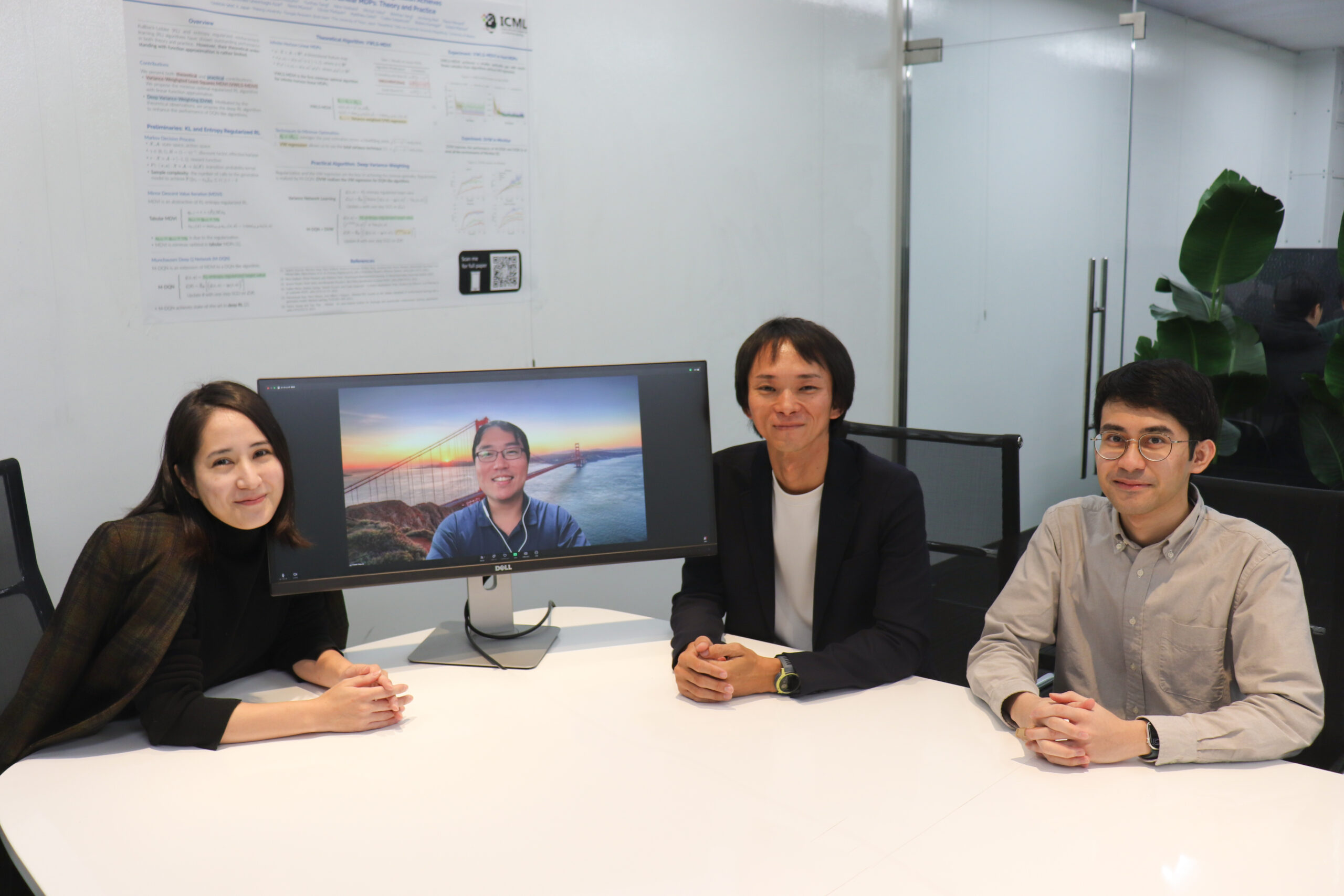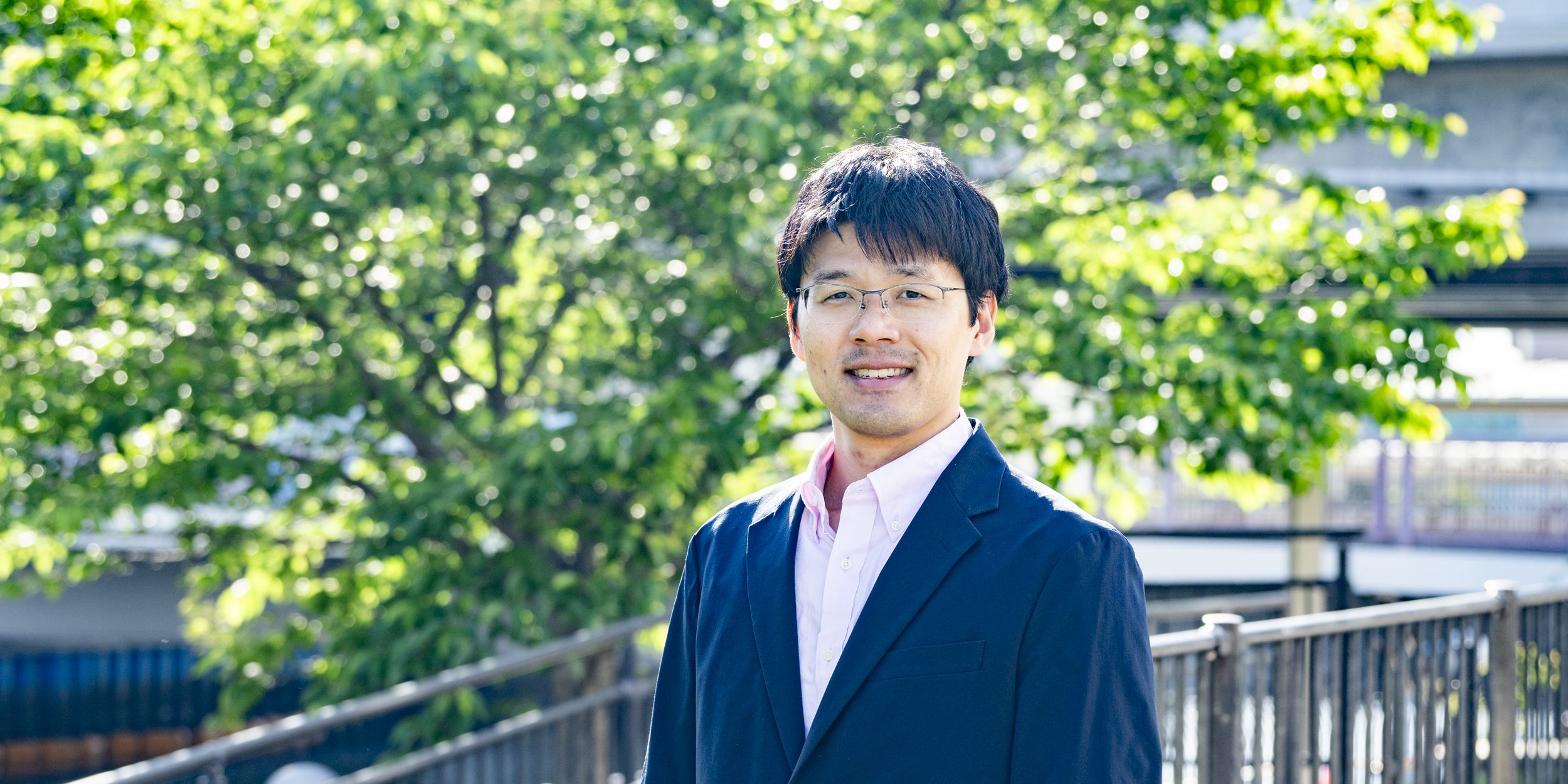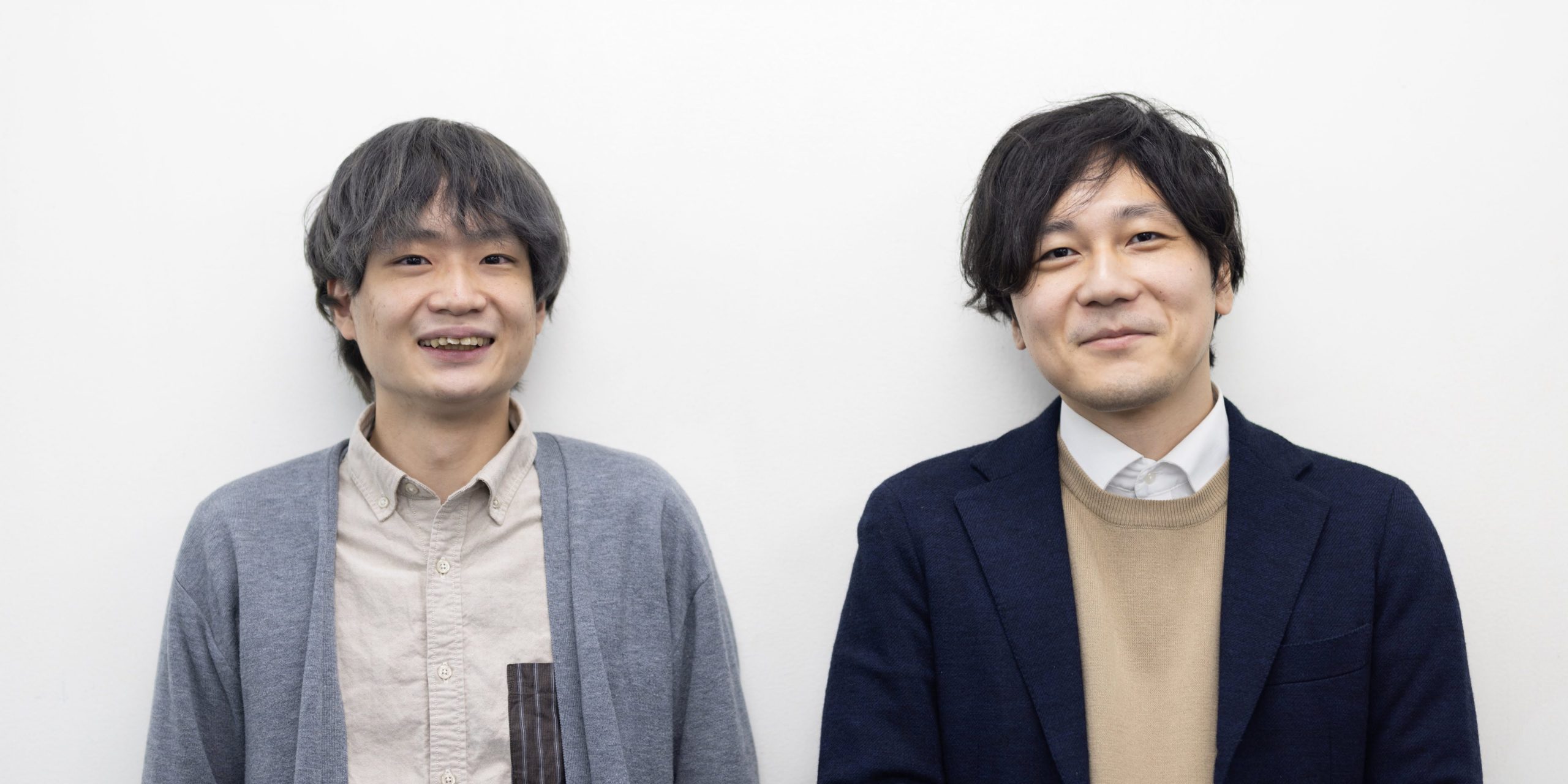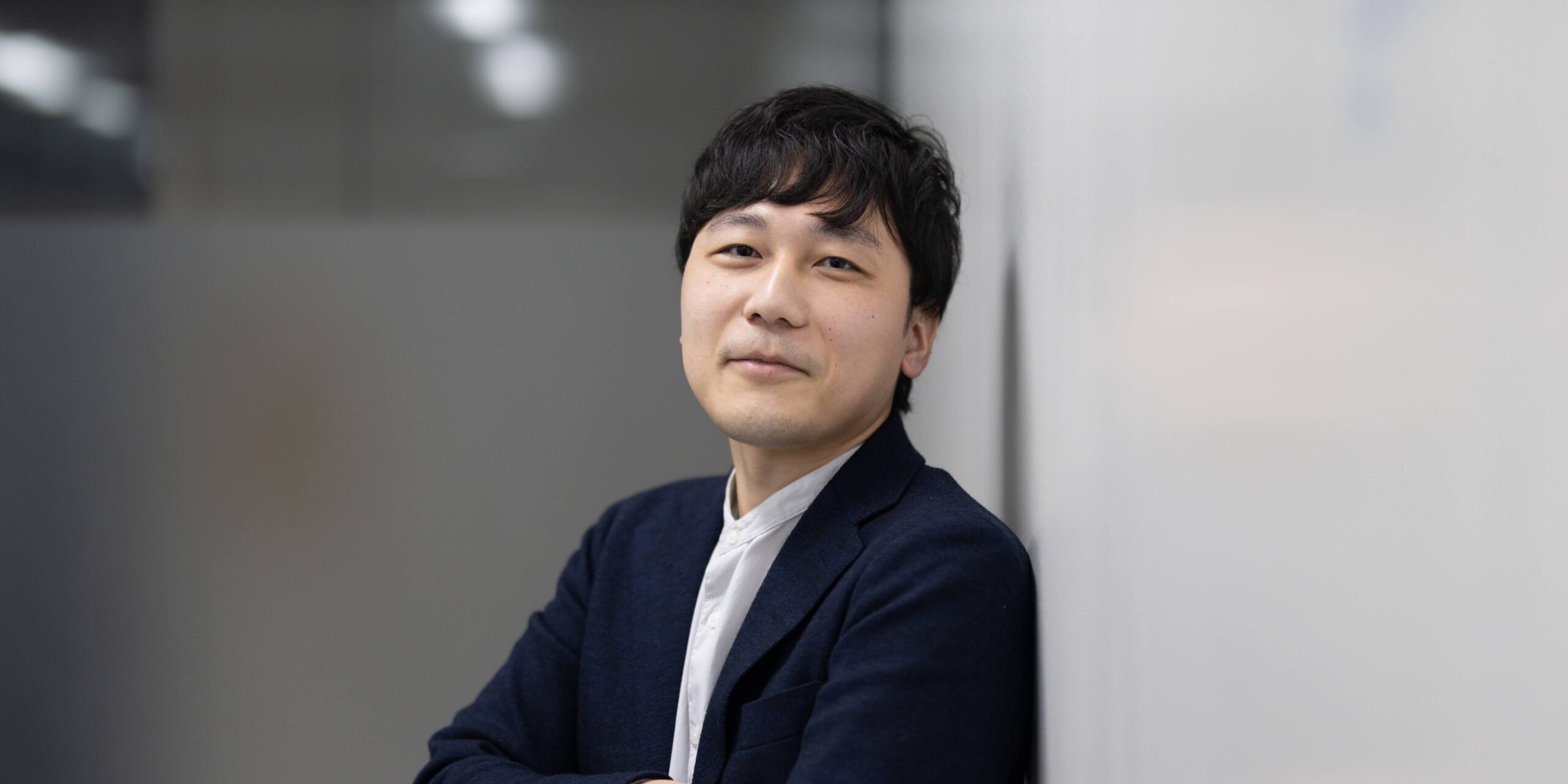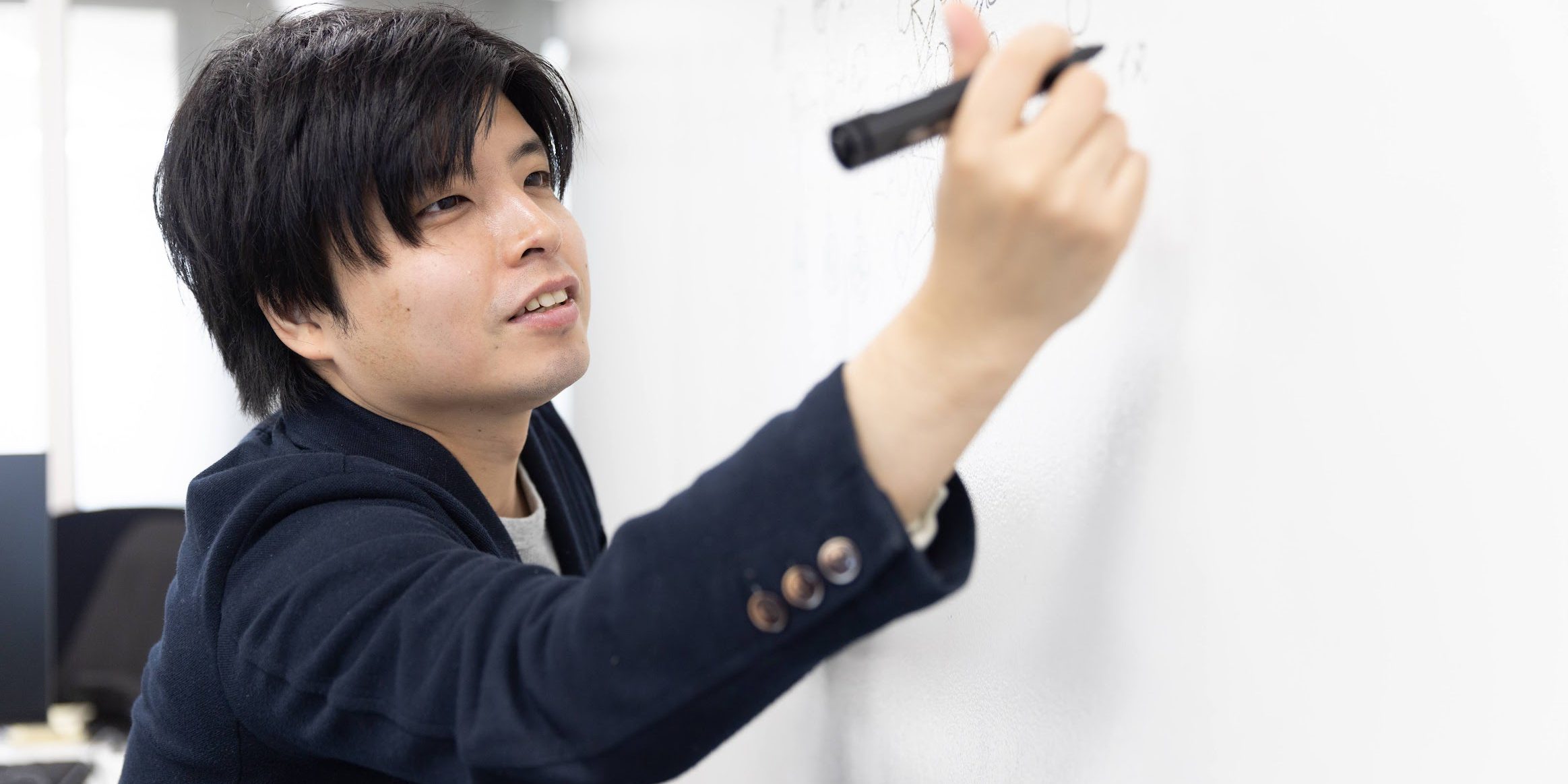Basic research is the origin of all activities of the Matsuo-Iwasawa Laboratory (hereinafter called Matsuo Lab). This interview will present the thoughts of Matsuo Lab’s leader, Professor Yutaka Matsuo, on basic research. The interview is divided into Part 1 and Part 2.
Part 2 will share the vision of the basic research team of the Matsuo Lab for researcher candidates and our research focus. Please take a look at this article, along with part 1 of this interview.
The Challenge in “Creating Intelligence“
As shared in Part 1, the overall vision of the Matsuo Lab is to “create an ecosystem” and our basic research team is working with the vision of “creating intelligence”. In particular, we put the utmost effort into Deep Learning. To be specific, our focus is the world model that is expected to become the next important pillar of intelligence research.
Every human being, not only humans but also dogs and monkeys, has had a simulator in their head since they were babies. We infer potential outcomes from the information we gather through sight, hearing, and touch, and we can choose actions that will lead to a more desirable future by making predictions.
However, AI and robots at the current level are unable to do that. In most implementations, even though they can learn how to respond well to certain events, AI and robots cannot predict what is around them and what will happen next if they take certain actions. On the other hand, once a technology of world models that simulate the real world is established, AI will be able to perform a variety of novel actions. It will be possible to achieve fully automated driving, which is difficult to achieve now, as well as semantic understanding in the world of language. This will require a technology called large-scale self-supervised learning and a new architecture.
Matsuo Lab hopes to establish such a world model before anyone else in the world, among pursuing other Deep Learning technologies.
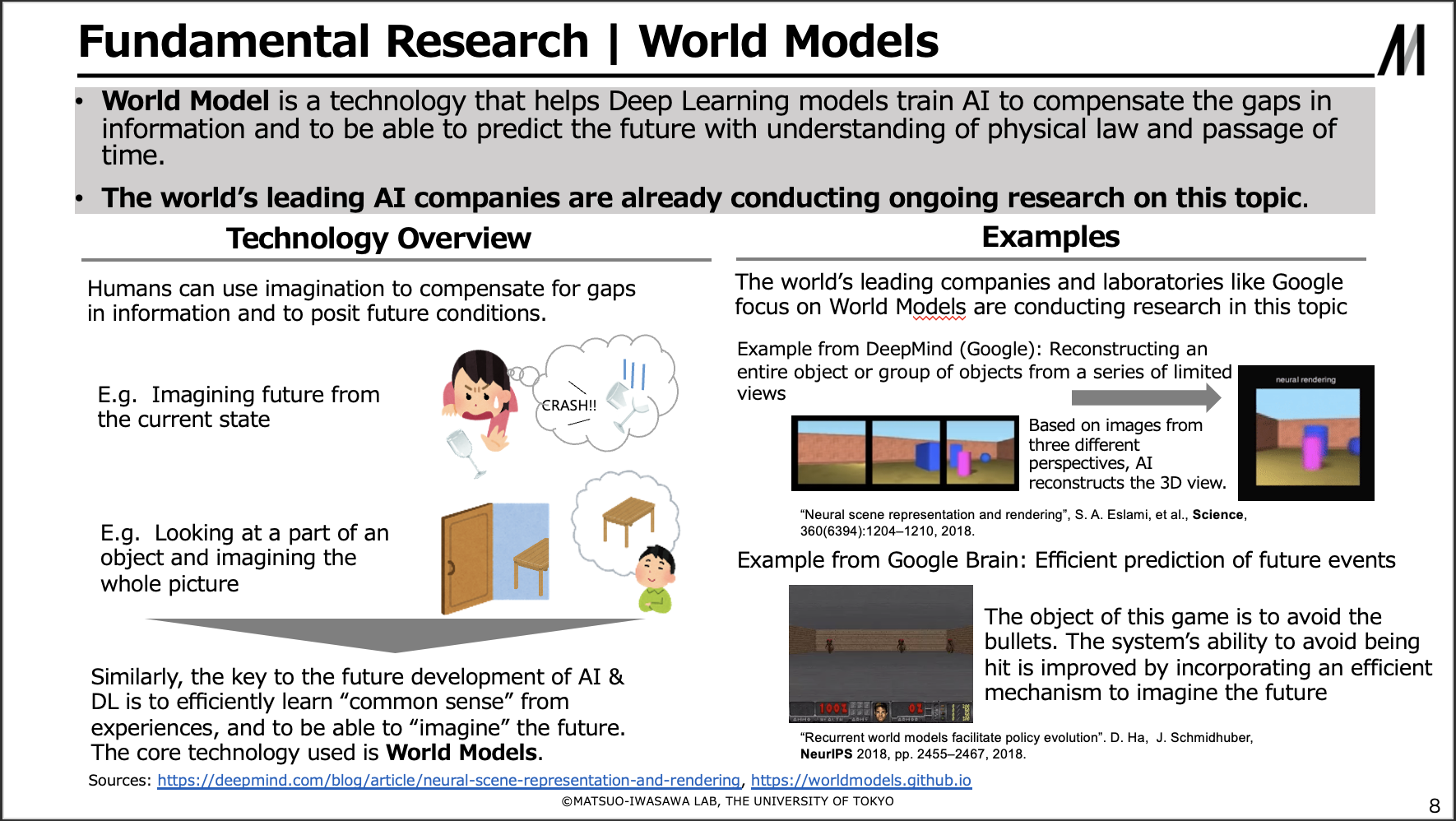
World Models is a technology that simulates the real world that corresponds to the “imagination” of humans.
Speaking of the fundamental motivation for my research as an individual and intellectual curiosity, I want to know what intelligence is. Industrial products have specifications, a designer, and a blueprint. However, humans do not have specifications that explain the full scope of the product.
We know the main parts of the body. The heart pumps blood, and oxygen and carbon dioxide are exchanged by the lungs. Much is also known about individual organs, blood vessels, nerves, and the cells that make them up. While we may marvel at the brilliantly constructed mechanisms of the human body, we may not be mystified as to why the human body behaves the way it does.
However, the mechanisms of intelligence, or the structure of the brain and its functions, are not yet well understood, not even in their broadest outlines. Of course, there is a lot of partial knowledge about the brain, but there are still many mysteries such as how we have this perception, how we can learn, how we can speak, how we have consciousness, and so on.
Only the basic research team at Matsuo Lab can do this.
As I mentioned in part 1, Matsuo Lab is taking on the challenge of creating an ecosystem. Matsuo Lab does not depend on government research funds for its management. This is why we can pursue challenging research that we truly believe should be promoted without major hurdles. The same applies to activities that are necessary for society, not just basic research. We can promote activities that we believe are important.
The Matsuo Lab’s lecture team manages a large-scale lecture program with a total of 14 lectures and 3,000 to 4,000 participants each year (as of October 2022). If we were to open and operate these lectures with a government project budget, we would have to write a proposal, present the results and process to some extent, and have the project adopted. However, there are too many uncertain factors to realize a lecture on such a large scale and advanced content. It will be difficult to realize this project only by trying it anyway and repeating the PDCA cycle. The ability to make our own decisions and work with a sense of speed, saying, “Let’s do it because it is important for society,” is an environmental trait unique to the Matsuo Lab.
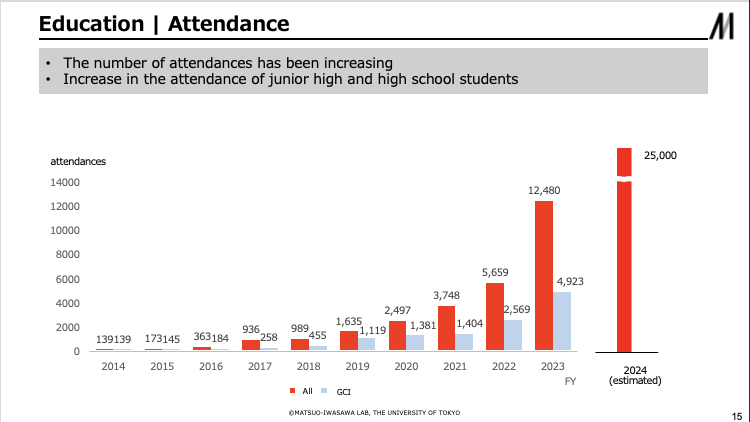
Number of students attending lectures offered by the Matsuo Lab
The Matsuo Lab has a clear structure in which we promote the social implementation of technology through joint research with companies, provide solid value, and then invest resources in basic research and human resource development that we believe we believe needs to be done. I believe that the Matsuo Lab’s strength lies in its ability to do what is good for society in a straightforward manner.
From a long-term and bird’s-eye view, there is a lot of latent value in Japan that should be harnessed. I believe that the Matsuo Lab’s position, which allows us to engage in activities that we believe are important to uncover these values, will become even more useful In the future, there will be new types of researchers. A sense of stagnation is emerging in conducting research in academia only. We believe that it is difficult to rely exclusively on individual research skills and that a world will come in which researchers who can connect these skills to society will play an active role in it. At Matsuo Lab, you can see such a world up close, and I believe this is a very meaningful opportunity for researchers in terms of career development.
Message to prospective members
I would like to conduct research with those who have a desire to “create intelligence” and “elucidate intelligence” in such an environment.
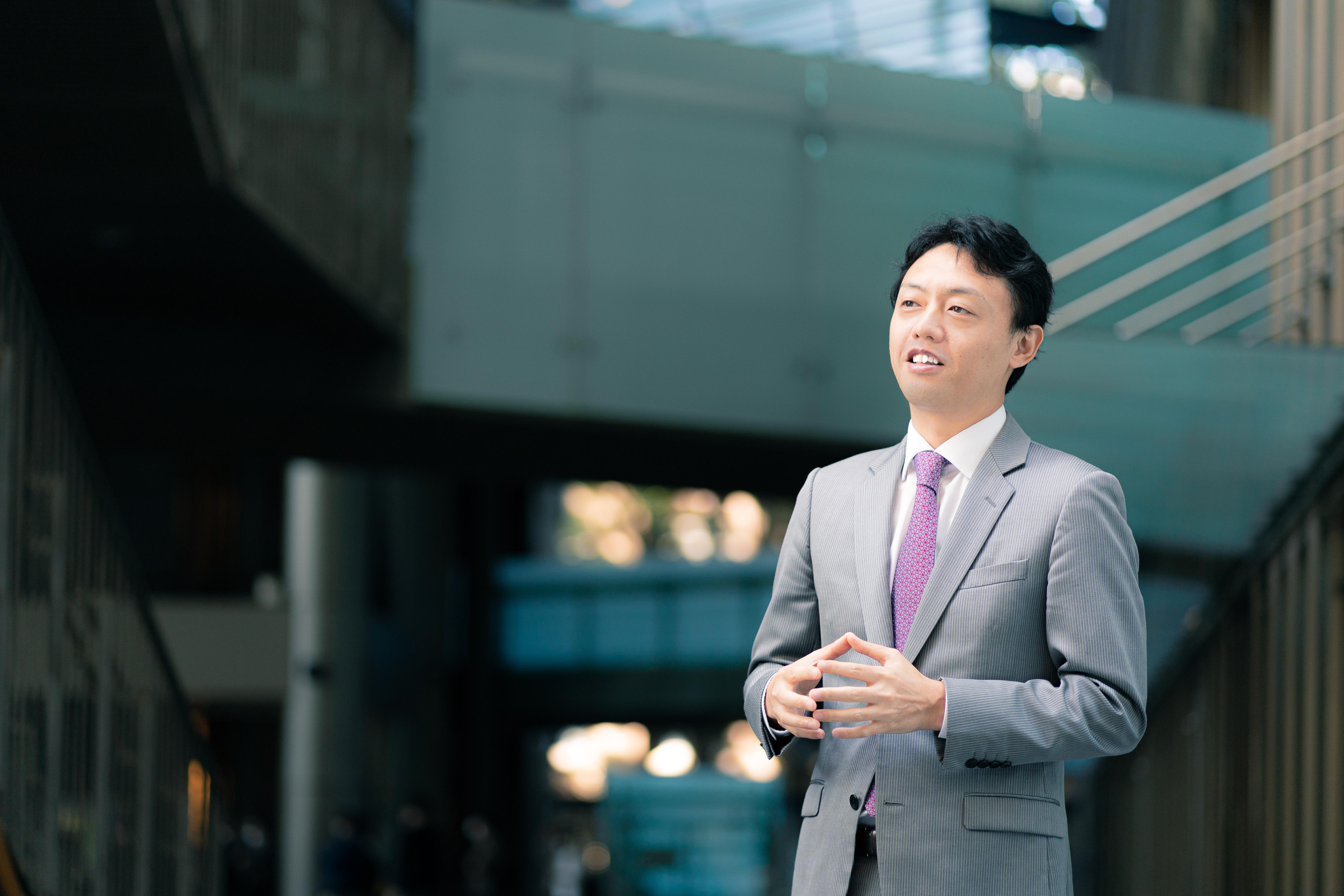
Since intelligence research is an effort that is close to integration rather than segmentation, I believe that the Matsuo Lab is suited to people who have the ambition to conduct research from a big-picture perspective, not those who are only interested in a particular theory of Deep Learning or who conduct research because they want to write a paper.
We would like to meet people who are passionate about creating new things and who are working on the latest Deep Learning research. Innovative technologies are still emerging in the area of Deep Learning, and large developments should continue to occur one after another in the future. I would like to create such a major trend from the Matsuo Lab. Perhaps even from an objective point of view, the Matsuo Lab is an interesting environment. The more one learns about it, the more one’s image of conventional academia may change drastically. I hope to make many big changes in the future. Let’s work together to elucidate intelligence and improve society.
【Profile】
Yutaka Matsuo
1997 B.S. in Electronics and Information Engineering, Faculty of Engineering, The University of Tokyo.
2002 Completed the doctoral program of the same university. D. in Engineering. Researcher, National Institute of Advanced Industrial Science and Technology (AIST)
Visiting Researcher at Stanford University from August 2005.
Associate Professor, Department of Technology Management Strategy, Center for Structuring Knowledge, Graduate School of Engineering, The University of Tokyo, since October 2007.
Co-Chair and Specially Appointed Associate Professor, Global Consumption Intelligence Endowed Chair, Department of Technology Management and Strategy, Graduate School of Engineering, The University of Tokyo, since 2014.
From 2019, Professor, Artificial Engineering Research Center/Department of Technology Management Strategy, Graduate School of Engineering, The University of Tokyo.
He received the Best Paper Award from the Japanese Society for Artificial Intelligence (2002) and the Makoto Nagao Memorial Special Award from the Information Processing Society of Japan (2007).
In the Japanese Society for Artificial Intelligence, he was Editor-in-Chief from 2012-14, Ethics Chair from 2014-18, and Director from 2020-22.
Chairman of the Board of Directors of the Japan Deep Learning Association since 2017.
External Director of Softbank Group since 2019.
Expert member of the Council for the Realization of New Capitalism since 2021.
Specializes in artificial intelligence, deep learning, and web mining.
http://ymatsuo.com/japanese/
